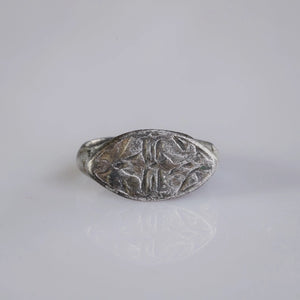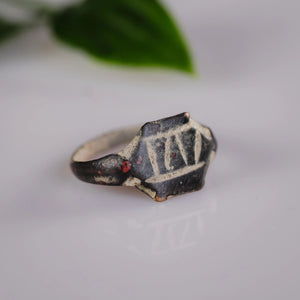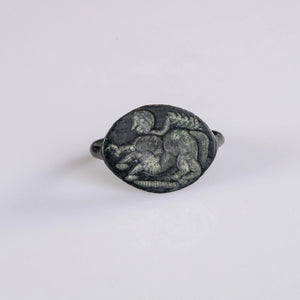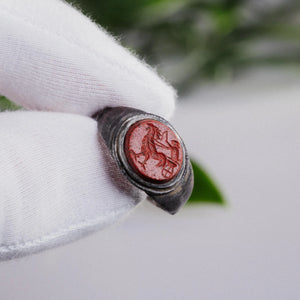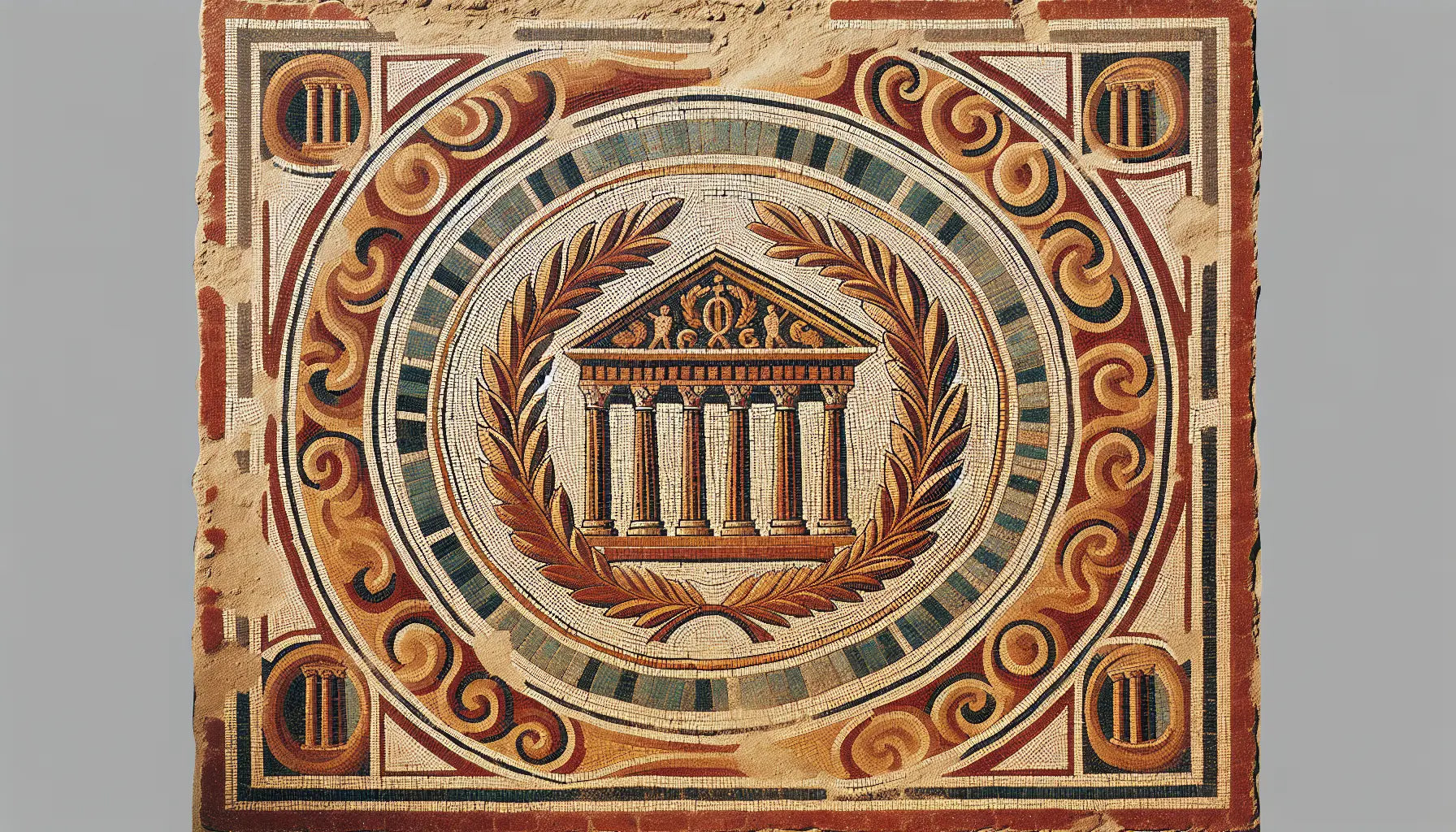Interesting facts
The Rise of Rome's First Emperor
When we think about the grandeur of Rome — its vast territories, monumental architecture, and enduring influence on Western civilization — it's easy to overlook the pivotal moment when this mighty city transitioned from a republic to an empire. This critical shift was not sudden; it was carefully orchestrated by a singular historical figure whose legacy shaped the future of Rome for centuries. That man was Gaius Julius Caesar Augustus, commonly known as Octavian, who is historically recognized as the first Roman emperor.
An Introduction to Octavian
The question "Who was the first imperial of Rome?" leads us directly to Octavian, a name that resonates deeply in Roman history. To understand why Octavian holds this unparalleled position, it helps to revisit the twilight years of the Roman Republic — a time rife with political turmoil, civil wars, and escalating ambitions.
Octavian was born into the Julian family, a patrician lineage with significant political clout. His great-uncle was Julius Caesar, the populist general and dictator whose assassination in 44 BCE threw Rome into chaos. Octavian’s path to power began in the aftermath of this event, a time when Rome desperately needed stability amid rampant infighting among its leaders.
From Crisis to Power
Though only nineteen when Julius Caesar died, Octavian demonstrated remarkable political acumen and patience. He carefully navigated alliances and rivalries, most notably the uneasy partnership with Mark Antony and Lepidus, known collectively as the Second Triumvirate. This alliance was not without its fractures, but it allowed Octavian to consolidate power and defeat Caesar's assassins at the Battle of Philippi in 42 BCE. These military victories positioned him as a formidable contender in the struggle for dominance over Rome.
The rivalry between Octavian and Mark Antony eventually culminated in the famous naval Battle of Actium in 31 BCE, where Octavian’s forces emerged victorious. Antony and Cleopatra’s subsequent suicides cleared the path for Octavian to become Rome’s uncontested ruler. However, the key to his lasting legacy wasn’t just in seizing power - it was in transforming the very nature of Roman governance.
A New Era Begins
In 27 BCE, Octavian made a bold political move. Instead of declaring himself king or dictator — titles despised in Roman culture due to their association with tyranny — he persuaded the Roman Senate to bestow upon him the honorific "Augustus," meaning "the revered one." This title marked the dawn of the Roman Empire and Augustus’ reign is often cited as its official beginning. The transition was emblematic of Rome's shift towards a more centralized power structure. Augustus cleverly maintained the outward forms of the Republic, preserving the Senate and other traditional institutions. Yet, in practice, he held supreme authority as the princeps, or "first citizen," controlling the military, finances, and foreign policy. This nuanced consolidation of power created the imperial system — a regime where the emperor wielded ultimate control while still maintaining a veneer of republican legality.

The Pax Romana and Augustus' Legacy
One might wonder why this transformation was so critical in Roman history. The Republic had been faltering for years, plagued with factionalism and disorder. Augustus' establishment of the imperial system brought relative peace and stability to the Mediterranean world — an era famously known as the Pax Romana. During his rule, Roman imperialism flourished. His administration reconstructed Rome's military apparatus and expanded its borders, solidifying control across Western Europe, the Near East, and parts of Africa.
Augustus’ impact on the Roman Empire extended beyond territorial expansion. He initiated comprehensive reforms in administration, law, and city planning. Public works flourished as aqueducts, roads, and temples were built or restored. His reign demonstrated how an emperor could be both a military leader and a patron of Roman culture and religion, enhancing the sense of unity within an increasingly diverse empire.
Balancing Authority and Tradition
It is fascinating to consider how Augustus managed the paradox of being an autocrat within a culture that valued its republican roots. He was acutely aware of Roman citizens’ suspicion of kingship, so he fostered an image of modesty and service to the state. This balancing act of authority and humility set a precedent for successive emperors, shaping the image of imperial Rome for centuries to come.
Looking at the broader scope of history, the imperial system Augustus put in place outlasted him by centuries, with the Roman Empire becoming a model of governance and culture for the Western world. Its eventual division into Western and Eastern (Byzantine) Empires and the fall of Constantinople in 1453 highlight the enduring legacy born from this vital transformation. Without Augustus' calculated vision and leadership, the Roman Empire might have fragmented or dissolved amid the internecine struggles that plagued the late Republic.
Augustus' Subtle Power and Propaganda
Interestingly, while the term "emperor" today conjures images of absolute rule and opulence, Augustus' initial approach was far more subtle and politically sophisticated. He understood power as a tool for maintaining peace and prosperity rather than merely personal glorification. This insight arguably explains why his era remains one of the most studied and admired periods in ancient history.
It’s worth mentioning, in passing, the intricate symbolism Augustus used to reinforce his rule. Coins bearing his image circulated throughout the empire, monuments commemorating his victories dotted the cityscape, and literature celebrating his reign flourished. These cultural instruments served as silent yet powerful reminders of a new order, a Rome commanded by one figure who had transcended the chaos of the past.
When exploring the idea of Roman imperialism, it must be acknowledged that Augustus’ reign was the seed from which this vast and diverse empire grew. His military campaigns secured frontiers and pacified hostile regions, enabling not just conquest but the transmission of Roman law, infrastructure, and culture. This imperialism had wide-reaching effects, influencing legal systems and governance structures in Europe long after the empire faded.
From Republic to Empire
Before the imperial era began, Rome was fractious and unstable; having Augustus Caesar as the first Roman emperor signaled a new chapter marked by centralization and longevity. His prudent stewardship and political skill ensured Rome remained a bastion of power, civilization, and culture for generations.
If you ever find yourself wandering through the ruins of the Roman Forum or gazing at the Colosseum, remember that behind these relics lies the legacy of a man who shaped Rome’s destiny: Augustus Caesar. His reign wasn’t merely about conquest or prestige; it was about reimagining a nation’s identity and future.
In examining the trajectory from Republic to Empire, it becomes clear: the first imperial of Rome wasn’t simply a ruler; he was a visionary who laid the foundation for a realm whose echoes persist even today.
The Modern Influences of Augustus' Reign
Thus, the story of Octavian — the first Roman emperor Augustus — invites us to delve deeper into understanding how leadership, strategy, and vision can redefine a civilization. From the ruins and texts, we gather lessons not just about power but about resilience, adaptation, and the complex human endeavor of shaping history.
To grasp the full impact of Augustus' reign, it is helpful to imagine the day-to-day life of Roman citizens during his time. For many Romans, the transition to imperial rule brought a welcome reprieve from decades of civil strife. Streets once filled with the clamor of marching legions and political upheaval became places where trade, arts, and public life could flourish peacefully. Rome itself transformed from a city plagued by unrest into a bustling metropolis where grand forums, theaters, and baths thrived, offering citizens spaces to gather, relax, and celebrate their shared culture.
The establishment of the Praetorian Guard by Augustus also played a key role in maintaining internal stability. As an elite bodyguard unit loyal to the emperor, the Praetorian Guard helped prevent coups and insurrections, ensuring that Augustus' vision for a stable empire had the military backing it needed not only to defend against external enemies but also to preserve peace within. This elite group, clothed in prestigious armor, served as a constant reminder of the might and dignity of Augustus' rule, mirroring the governance that aimed to balance power and protection seamlessly.
Why did Augustus establish the Praetorian Guard?
Augustus established the Praetorian Guard to maintain internal stability within the Roman Empire. This elite group served as personal bodyguards to the emperor, ensuring his security and protecting against coups and insurrections. Their presence was not just for Augustus' safety, but also to symbolize the power and order of his reign, reflecting his broader strategy of securing peace both internally and externally.
Moreover, Augustus’ reforms didn’t just affect political structures. His widespread patronage of the arts and literature fostered a golden age of Roman culture. Poets like Virgil and Horace flourished under his sponsorship, crafting works that celebrated Rome’s origins and Augustus’ new order. This cultural renaissance helped to unify the diverse peoples of the empire, creating a shared sense of identity under the imperial banner.
Augustus was also a master of messaging, understanding the power of symbolism in reinforcing his authority. Public monuments such as the Ara Pacis — the Altar of Peace — celebrated the peace and prosperity under his rule, weaving together political propaganda and religious ritual. These visual and architectural achievements conveyed a narrative of renewal and divine favor that helped legitimize his unprecedented concentration of power.
Augustus' Strategic Military Expansions
His attention to religion was strategic, too. Augustus positioned himself as a restorer of traditional Roman values and religious practices, aligning the emperor’s role with that of a moral guardian for the state. By reviving old temples and sponsoring sacred festivals, he linked his reign with Rome’s past glory and the gods’ favor, creating a sacred legitimacy that transcended mere military might.
On the military front, Augustus was both cautious and ambitious. While expanding the empire’s borders during his reign, he was mindful not to overstretch. His campaigns in regions such as Egypt, the Balkans, and along the Danube secured Rome’s frontiers and buffered against potential threats. Yet, he emphasized consolidation and integration over relentless conquest, focusing on bringing conquered peoples into the Roman fold through infrastructure, law, and local governance.
This nuanced approach laid the groundwork for the empire’s long-term durability. Instead of mere occupation, Augustus helped craft a model where local elites could prosper under Roman oversight, benefiting from shared law and commerce, which bolstered loyalty and stability. This blend of military strength and political acumen was central to sustaining Roman supremacy for generations.
Reflection on Augustus' Reign
In modern times, historians often debate the implications of Augustus' rise. Was he a dictator cloaked in republican dress or a patient reformer who saved Rome from collapse? The answer is likely somewhere in between. His reign demonstrates how leadership demands both resolve and tact, how building an enduring political system requires balancing power with popular legitimacy.
Understanding Augustus’ legacy also helps us reflect on the broader question of how empires form and endure. His rule shows how the combination of military force, cultural patronage, and political savvy can transform a city-state into a sprawling civilization whose influence echoes through millennia.
In sum, Gaius Julius Caesar Augustus was more than the first imperial of Rome — he was a figure whose leadership marked a turning point in human history. His story reminds us that the transition from chaos to order, from division to unity, often rests on the vision of a single individual capable of navigating complex realities with wisdom and determination.
As you consider the ruins, the histories, and the cultural treasures of Rome, remember Augustus not just as a name, but as a symbol of transformation — the man who redefined an empire and, in doing so, left an indelible mark on the story of civilization itself.
Discover the Legacy through Wearable History
Wear the Legacy of Rome
Explore the 'Auriga' RingWho was Augustus Caesar?
Augustus Caesar, originally named Octavian, was the first emperor of Rome. He led the transition from the Roman Republic to the Roman Empire, bringing peace and stability through reforms and strategic expansions. His reign started the Pax Romana, a period of relative peace across the Roman territories.
What was the Pax Romana?
The Pax Romana, which means "Roman Peace," was a period from 27 BCE to AD 180 during Augustus Caesar's reign and beyond, where the Roman Empire enjoyed relative peace and stability, flourishing in trade, arts, and expansion without major military conflicts internally.
How can I experience a piece of Roman history today?
You can experience a piece of Roman history through authentic artifacts turned into jewelry at stores like auroraantiqua.store, which offers items like the 'Auriga' Roman Silver Intaglio Ring, allowing history enthusiasts to own a tangible part of the past.
